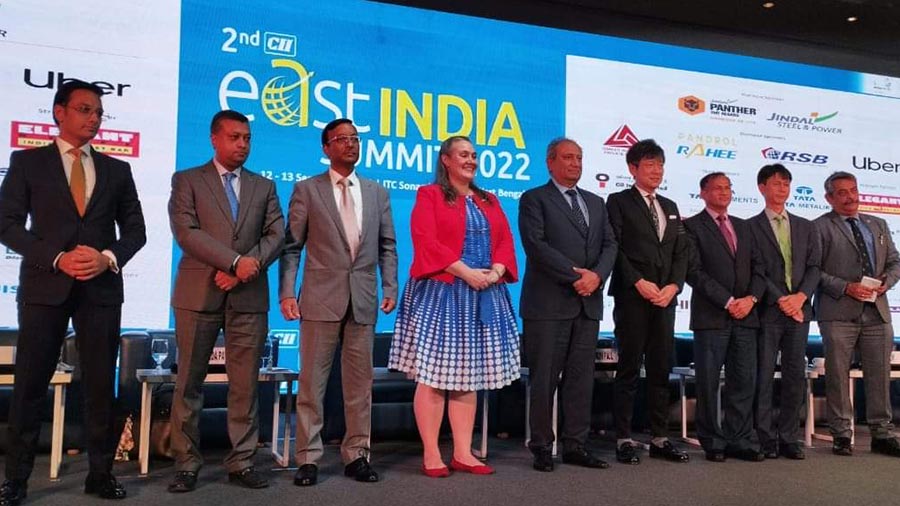In the East India summit that is being held in Kolkata on September 12-13 by Confederation of Indian Industries (CII), diplomats representing a host of countries including the US, Korea, Japan and Bangladesh on Monday expressed willingness to take part in the development process of Eastern India for greater economic and people-to-people connect.
Speaking at the inaugural session of the summit, several developmental agencies also committed to more funding for sustainable infrastructure projects for better connectivity and overall regional development.
Rajat Mishra, director general, Asian Infrastructure Investment Bank, said the agency was just six years old and has an exposure of US$9 billion involving 36 projects in India.
Mishra added that they are engaged with projects in modernisation of the energy sector and irrigation systems in West Bengal.
East India Summit intends to global infrastructure linkages with Eastern India, with a special focus on urban infrastructure, roads and highways, railways, ports and multimodal, logistics and warehousing, and infrastructure finance. Countries like UK, USA, Bangladesh, Japan, Germany, Nepal, and South Korea were joined the initiative as partner countries.
On the bilateral relations with India, Andalib Elias, deputy high commissioner for Bangladesh in Kolkata, said: “We are progressing from the golden to diamond standard.”
He mentioned that lots of infrastructure projects in roads and bridges will help better connectivity with India.
Elias also stated that connectivity has been improved by inland waterways using protocol routes with Chittagong and Mongla ports of Bangladesh with India.
US consul general to Kolkata, Melinda Pavek, said: “This region holds a lot of potential and several American agencies are involved in developmental projects. We recently held a meeting with the concerned ministries to define the pillars of cooperation under this partnership that includes support for the implementation of India’s ambitious multi-modal infrastructure and logistical integration goals under the Gati Shakti master plan.”
Japanese sovereign development fund Japan International Cooperation Agency also mentioned that they are doing several projects in the Indo-Bangla region.
Eshor Raj Poudel, consul general, Nepal said Nepal shares eight rail and road borders with India.
The developmental agencies like United States Agency for International Development (USAID), United States Trade and Development Agency (USTDA), and German Agency for International Cooperation stated they are involved in several projects in the region and are keen on more sustainable projects.
Korea Trade-Investment Promotion Agency also expressed that it wants to participate in smart city infrastructure and logistics projects.
